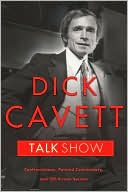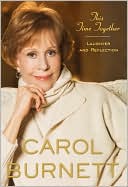America's First Network TV Censor: The Work of NBC's Stockton Helffrich
America’s First Network TV Censor: The Work of NBC’s Stockton Helffrich is a unique examination of early television censorship, centered around the papers of Stockton Helffrich, the first manager of the censorship department at NBC. Set against the backdrop of postwar America and contextualized by myriad primary sources including original interviews and unpublished material, Helffrich’s reports illustrate how early censorship of advertising, language, and depictions of sex, violence,...
Search in google:
America’s First Network TV Censor: The Work of NBC’s Stockton Helffrich is a unique examination of early television censorship, centered around the papers of Stockton Helffrich, the first manager of the censorship department at NBC. Set against the backdrop of postwar America and contextualized by myriad primary sources including original interviews and unpublished material, Helffrich’s reports illustrate how early censorship of advertising, language, and depictions of sex, violence, and race shaped the new medium. While other books have cited Helffrich’s reports, none have considered them as a body of work, complemented by the details of Helffrich’s life and the era in which he lived. America’s First Network TV Censor explores the ways in which Helffrich’s personal history and social class influenced his perception of his role as NBC-TV censor and his tendency to ignore certain political and cultural taboos while embracing others.Author Robert Pondillo considers Helffrich’s life in broadcasting before and after the Second World War, and his censorial work in the context of 1950s American culture and emerging network television. Pondillo discusses the ways that cultural phenomena, including the arrival of the mid-twentieth-century religious boom, McCarthyism, the dawn of the Civil Rights era, and the social upheaval over sex, music, and youth, contributed to a general sense that the country was morally adrift and ripe for communist takeover. Five often-censored subjects—advertising, language, and depictions of sex, violence, and race—are explored in detail, exposing the surprising complexity and nuance of early media censorship. Questions of whether too many sadistic westerns would coarsen America’s children, how to talk about homosexuality without using the word “homosexuality,” and how best to advertise toilet paper without offending people were on Helffrich’s mind; his answers to these questions helped shape the broadcast media we know today.
Acknowledgments ixIntroduction: Context and Beginnings of TV Censorship 11 Stockton Who? 132 The Early Years 333 The NBC-TV Program Policies Manual 554 Sin, Sex, and TV Censorship 735 Gagging the Gags 996 TV Violence 1227 Postwar Racial Discourse 1428 Of Truth and Toilet Paper 161Conclusion: A Prescient Vision 190Notes 203Index 245
\ From the Publisher “In this well-researched and entertaining book, Robert Pondillo has investigated the genesis of network television standards through the eyes and ears—and personal prejudices—of one of early television’s seminal influences. . . . Every fan (and critic) of television will find this book of interest.”\ —William Clotworthy, Director, Broadcast Standards, NBC-TV East Coast 1979–1990, On-set Standards Editor, “Saturday Night Live”\ \ \






